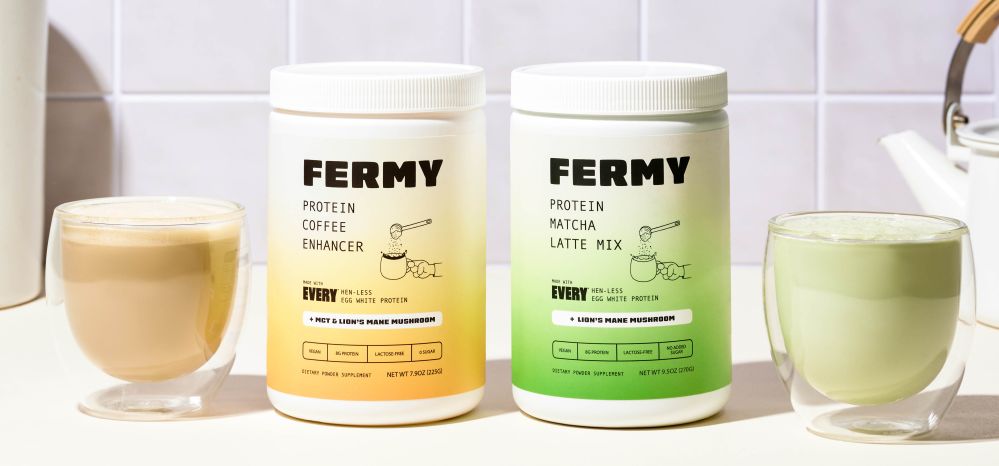Multinational food manufacturer Grupo Palacios has struck a commercial agreement with The EVERY Company—the first player to commercialize egg proteins produced by microbes instead of chickens—to incorporate its EVERY Egg liquid egg into its flagship Spanish omelets.
Palacios’ Spanish omelets (potato tortillas) are sold as ready-to-eat products (frozen and refrigerated) in various formats (whole, sliced, mini) in retail and foodservice locations in multiple countries.
In a press release announcing the deal, the Madrid-based company said it was “genuinely amazed” by the taste and versatility of EVERY Egg, adding that its “ability to seamlessly blend into a wide range of dishes while maintaining the authentic taste and texture of a high-quality hen egg is remarkable.”
Palacios started out in the meat industry but has since branched out to tortillas, pizzas, pastries, and plant-based products. It generated revenues of €380 million ($407 million) in 2023, has 11 production plants in Spain, one in the UK and another in the US, with products distributed in 50+ countries.
The EVERY Company VP and general manager Lance Lively told AgFunderNews: “Our intention with this collaboration is to ultimately be sold everywhere that Palacios currently sells its Spanish omelet products. This scale of distribution will of course take time, and the roll-out will depend on regulatory approvals and in-market success.”
He added: “We are in the process of applying for regulatory approval in the EU. Fortunately, Palacios is a major Spanish food company that exports its products to Europe, the US, Latin America, the Middle East, and East Asia. There is strong overlap between Palacios’ international presence and EVERY’s target markets.”
The Every Co portfolio: The EVERY Company engineers yeast (Komagataella phaffii) strains to express proteins found in eggs during a fermentation process requiring a source of sugars as the feedstock. To date, it has developed four ingredients:
- EVERY EggWhite: A 1-to-1 egg white replacer containing ovalbumin (the most prevalent protein in egg white) which delivers functional properties including aeration, whipping, gelling, binding, and foam stability.
- EVERY Egg: A liquid whole egg replacement containing EVERY EggWhite, plant-based oils, natural colors and flavors, fiber, and water.
- EVERY Protein: a highly soluble, ‘near-invisible’ protein bio-identical to a glycoprotein (ovomucoid) found in egg white, enabling “new-to-the-world, protein-boosted beverages and food products with a neutral sensory profile and optical clarity.”
- EVERY Pepsin: Animal-free pepsin (an enzyme traditionally sourced from pig stomachs), which is on hold as the firm prioritizes its other ingredients.
Recent deals with Unilever, Landish Foods
Founded by Arturo Elizondo and David Anchel in late 2014 as Clara Foods—California-based The EVERY Co has raised $233 million to date, a pretty jaw-dropping sum although markedly less than the staggering $840 million raised by Perfect Day to try and get its animal-free dairy business off the ground.
The firm recently teamed up with Unilever-owned brand The Vegetarian Butcher to incorporate EVERY EggWhite into selected meat alternatives as a clean label binder, while partners using its EVERY Protein soluble protein include Landish Foods and Pulp Culture.
The startup, which has forged partnerships with ingredients giant Ingredion for distribution and AB InBev for manufacturing and scale up, has secured ‘no questions’ letters from the FDA in response to its GRAS (Generally Recognized as Safe) determinations for its proteins and has submitted applications under the Novel Foods process in the EU and the UK.
According to Elizondo, who spoke to AgFunderNews in February, the company’s two priorities for 2024 are “onboarding additional manufacturing capacity and translating that into products in the marketplace.”
He added: “We’ve proven that our technology works at scale; we’re producing regularly in 100,000-L+ fermenters [via co-manufacturers] making metric tons of product. So it’s now a matter of continuing to dial up scale so we have enough capacity to ultimately bring the cost down.”






